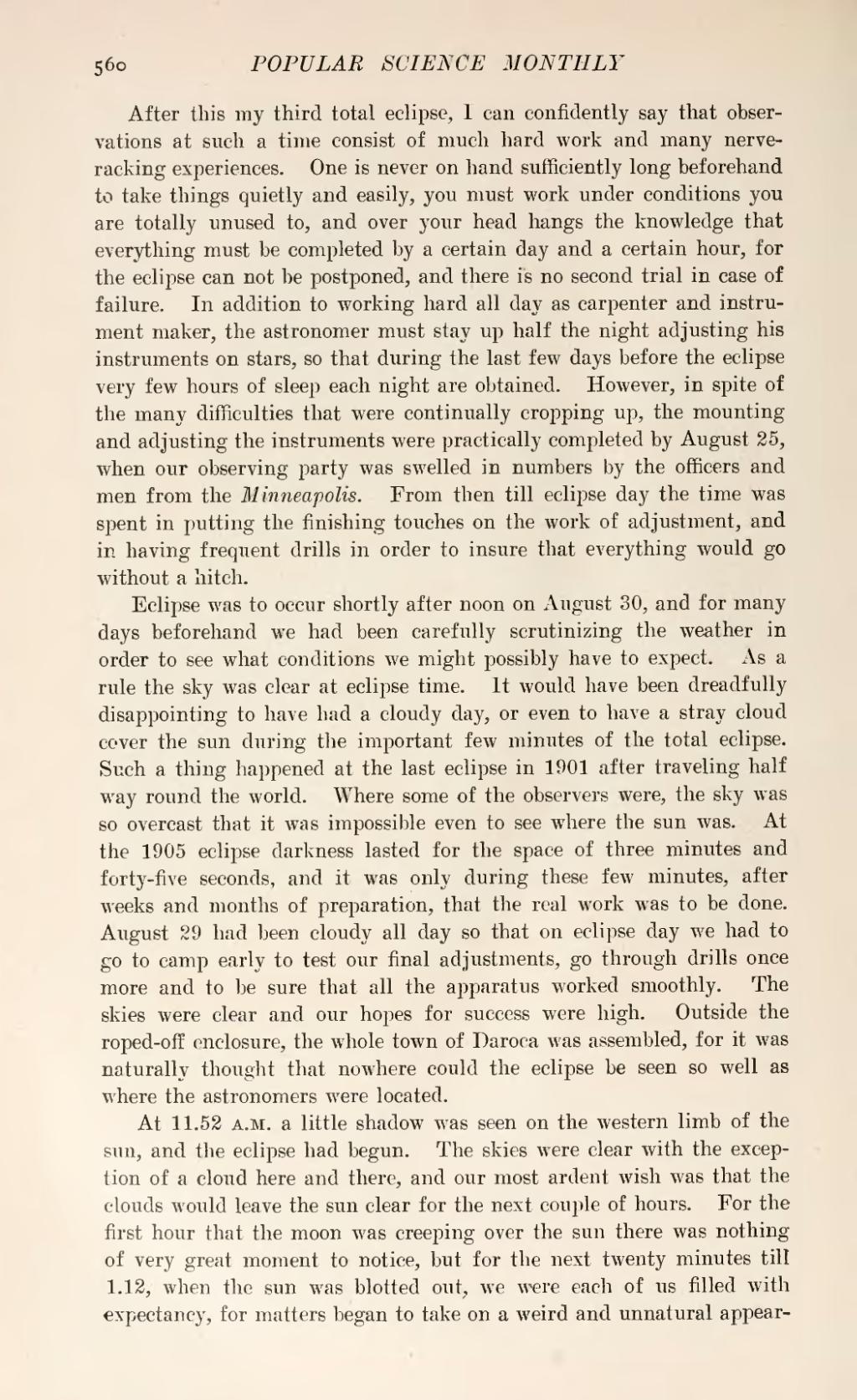After this my third total eclipse, I can confidently say that observations at such a time consist of much hard work and many nerveracking experiences. One is never on hand sufficiently long beforehand to take things quietly and easily, you must work under conditions you are totally unused to, and over your head hangs the knowledge that everything must be completed by a certain day and a certain hour, for the eclipse can not be postponed, and there is no second trial in case of failure. In addition to working hard all day as carpenter and instrument maker, the astronomer must stay up half the night adjusting his instruments on stars, so that during the last few days before the eclipse very few hours of sleep each night are obtained. However, in spite of the many difficulties that were continually cropping up, the mounting and adjusting the instruments were practically completed by August 25, when our observing party was swelled in numbers by the officers and men from the Minneapolis. From then till eclipse day the time was spent in putting the finishing touches on the work of adjustment, and in having frequent drills in order to insure that everything would go without a hitch.
Eclipse was to occur shortly after noon on August 30, and for many days beforehand we had been carefully scrutinizing the weather in order to see what conditions we might possibly have to expect. As a rule the sky was clear at eclipse time. It would have been dreadfully disappointing to have had a cloudy day, or even to have a stray cloud cover the sun during the important few minutes of the total eclipse. Such a thing happened at the last eclipse in 1901 after traveling half way round the world. Where some of the observers were, the sky was so overcast that it was impossible even to see where the sun was. At the 1905 eclipse darkness lasted for the space of three minutes and forty-five seconds, and it was only during these few minutes, after weeks and months of preparation, that the real work was to be done. August 29 had been cloudy all day so that on eclipse day we had to go to camp early to test our final adjustments, go through drills once more and to be sure that all the apparatus worked smoothly. The skies were clear and our hopes for success were high. Outside the roped-off enclosure, the whole town of Daroca was assembled, for it was naturally thought that nowhere could the eclipse be seen so well as where the astronomers were located.
At 11.52 a. m. a little shadow was seen on the western limb of the sun, and the eclipse had begun. The skies were clear with the exception of a cloud here and there, and our most ardent wish was that the clouds would leave the sun clear for the next couple of hours. For the first hour that the moon was creeping over the sun there was nothing of very great moment to notice, but for the next twenty minutes till 1.12, when the sun was blotted out, we were each of us filled with expectancy, for matters began to take on a weird and unnatural appear-

